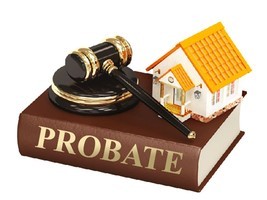Probate Attorney
The First Four Things To Do

If you’ve been named as the Executor or Executrix in the Last Will & Testament of a loved one, when they die, these are the first four things you should do:
- First and foremost, you need to allow yourself the time to properly grieve. This cannot be overstated. Most likely the deceased was a close relative or friend and they trusted you to properly handle their estate otherwise you wouldn’t be in this position. You should take the time to come to terms with such a loss, but take comfort in the fact that as the Executor or Executrix you have been entrusted with carrying out the deceased’s final wishes.
- After allowing yourself time to grieve, you can begin your duties by collecting the original last will and testament of the deceased, a copy of the death certificate, and any information that you can obtain regarding the assets and debts of the deceased. These documents are necessary to proceed with the probate process and will serve to give you an initial albeit probably incomplete picture of the deceased’s estate, explain the lawyers from Carpenter & Lewis PLLC.
- Next, if the deceased had any open credit card accounts, you should notify those companies that the person has passed away so that they can close the accounts. Doing this prevents the possibility of the estate incurring debt from theft or fraudulent purchases. Also in some cases closing these accounts may stop the estate from incurring further interest debt on unpaid balances. Furthermore, if you are contacted by any creditors or debt collectors you should notify them that the person passed away and that you are in the process of consulting an attorney about probating the deceased’s estate. Unless you personally are responsible for the debt, do not proceed to pay any of the deceased’s debts until you have consulted with a knowledgeable probate attorney. As the Executor or Executrix of the estate, you are not personally liable for the debts of the decedent and you should not pay these debts personally.
- You should consult a knowledgeable probate attorney to help you decide how to proceed, including helping you obtain an official document from the county probate court that authorizes you to act for the estate, and to know how to conduct further communication with debt collectors and creditors of the estate.
Any attorney can advise and help you with the probate process and in some cases, estates may not need to be probated at all. Regardless of the size or complexity of the estate, you should consult a knowledgeable probate attorney to help guide you through the process and make sure you comply with your duties pursuant to the law.


